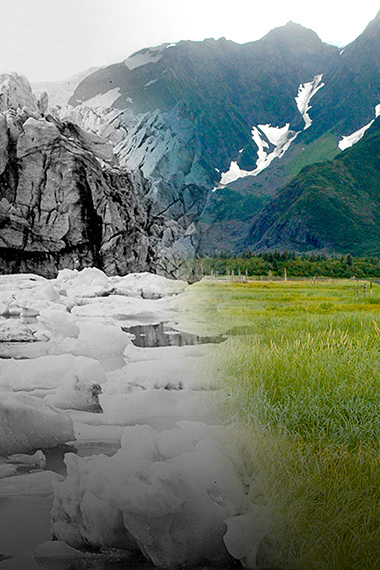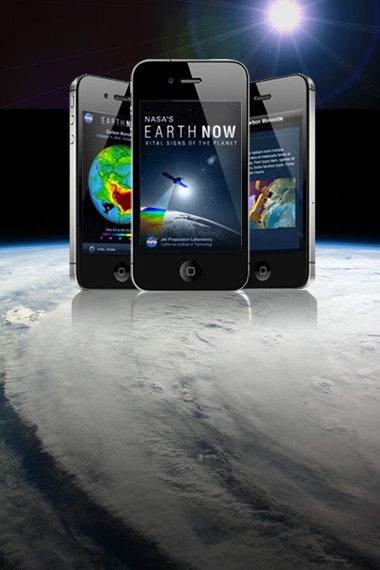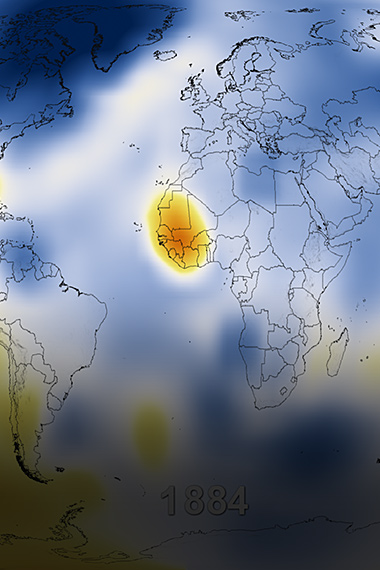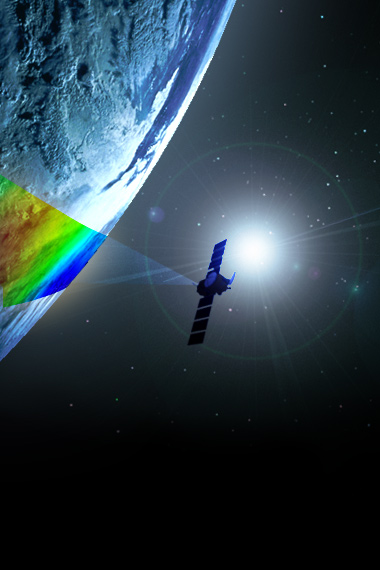Scientific consensus: Earth's climate is warming

Temperature data from four international science institutions. All show rapid warming in the past few decades and that the last decade has been the warmest on record. Data sources: NASA's Goddard Institute for Space Studies, NOAA National Climatic Data Center, Met Office Hadley Centre/Climatic Research Unit and the Japanese Meteorological Agency.
Multiple studies published in peer-reviewed scientific journals1 show that 97 percent or more of actively publishing climate scientists agree: Climate-warming trends over the past century are very likely due to human activities. In addition, most of the leading scientific organizations worldwide have issued public statements endorsing this position. The following is a partial list of these organizations, along with links to their published statements and a selection of related resources.
AMERICAN SCIENTIFIC SOCIETIES
Statement on climate change from 18 scientific associations
"Observations throughout the world make it clear that climate change is occurring, and rigorous scientific research demonstrates that the greenhouse gases emitted by human activities are the primary driver." (2009)2
-
 American Association for the Advancement of Science
American Association for the Advancement of Science"The scientific evidence is clear: global climate change caused by human activities is occurring now, and it is a growing threat to society." (2006)3
-
 American Chemical Society
American Chemical Society"Comprehensive scientific assessments of our current and potential future climates clearly indicate that climate change is real, largely attributable to emissions from human activities, and potentially a very serious problem." (2004)4
-
 American Geophysical Union
American Geophysical Union"Human‐induced climate change requires urgent action. Humanity is the major influence on the global climate change observed over the past 50 years. Rapid societal responses can significantly lessen negative outcomes." (Adopted 2003, revised and reaffirmed 2007, 2012, 2013)5
-
 American Medical Association
American Medical Association"Our AMA ... supports the findings of the Intergovernmental Panel on Climate Change’s fourth assessment report and concurs with the scientific consensus that the Earth is undergoing adverse global climate change and that anthropogenic contributions are significant." (2013)6
-
 American Meteorological Society
American Meteorological Society"It is clear from extensive scientific evidence that the dominant cause of the rapid change in climate of the past half century is human-induced increases in the amount of atmospheric greenhouse gases, including carbon dioxide (CO2), chlorofluorocarbons, methane, and nitrous oxide." (2012)7
-
 American Physical Society
American Physical Society"The evidence is incontrovertible: Global warming is occurring. If no mitigating actions are taken, significant disruptions in the Earth’s physical and ecological systems, social systems, security and human health are likely to occur. We must reduce emissions of greenhouse gases beginning now." (2007)8
-
 The Geological Society of America
The Geological Society of America"The Geological Society of America (GSA) concurs with assessments by the National Academies of Science (2005), the National Research Council (2006), and the Intergovernmental Panel on Climate Change (IPCC, 2007) that global climate has warmed and that human activities (mainly greenhouse‐gas emissions) account for most of the warming since the middle 1900s." (2006; revised 2010)9
SCIENCE ACADEMIES
International academies: Joint statement
"Climate change is real. There will always be uncertainty in understanding a system as complex as the world’s climate. However there is now strong evidence that significant global warming is occurring. The evidence comes from direct measurements of rising surface air temperatures and subsurface ocean temperatures and from phenomena such as increases in average global sea levels, retreating glaciers, and changes to many physical and biological systems. It is likely that most of the warming in recent decades can be attributed to human activities (IPCC 2001)." (2005, 11 international science academies)10
-
 U.S. National Academy of Sciences
U.S. National Academy of Sciences"The scientific understanding of climate change is now sufficiently clear to justify taking steps to reduce the amount of greenhouse gases in the atmosphere." (2005)11
U.S. GOVERNMENT AGENCIES
-
 U.S. Global Change Research Program
U.S. Global Change Research Program"The global warming of the past 50 years is due primarily to human-induced increases in heat-trapping gases. Human 'fingerprints' also have been identified in many other aspects of the climate system, including changes in ocean heat content, precipitation, atmospheric moisture, and Arctic sea ice." (2009, 13 U.S. government departments and agencies)12
INTERGOVERNMENTAL BODIES
-
 Intergovernmental Panel on Climate Change
Intergovernmental Panel on Climate Change“Warming of the climate system is unequivocal, as is now evident from observations of increases in global average air and ocean temperatures, widespread melting of snow and ice, and rising global average sea level.”13
“Most of the observed increase in global average temperatures since the mid-20th century is very likely* due to the observed increase in anthropogenic greenhouse gas concentrations.”14
*IPCC defines ‘very likely’ as greater than 90 percent probability of occurrence.
OTHER RESOURCES
List of worldwide scientific organizations
The following page lists the nearly 200 worldwide scientific organizations that hold the position that climate change has been caused by human action.
http://opr.ca.gov/s_listoforganizations.php
U.S. agencies
The following page contains information on what federal agencies are doing to adapt to climate change.
http://www.c2es.org/docUploads/federal-agencies-adaptation.pdf
References
- J. Cook, et al, "Quantifying the consensus on anthropogenic global warming in the scientific literature," Environmental Research Letters Vol. 8 No. 2, (June 2013); DOI:10.1088/1748-9326/8/2/024024
Quotation from page 3: "Among abstracts that expressed a position on AGW [Anthropogenic, or human-cause, Global Warming], 97.1% endorsed the scientific consensus. Among scientists who expressed a position on AGW in their abstract, 98.4% endorsed the consensus.”
W. R. L. Anderegg, “Expert Credibility in Climate Change,” Proceedings of the National Academy of Sciences Vol. 107 No. 27, 12107-12109 (21 June 2010); DOI: 10.1073/pnas.1003187107.
P. T. Doran & M. K. Zimmerman, "Examining the Scientific Consensus on Climate Change," Eos Transactions American Geophysical Union Vol. 90 Issue 3 (2009), 22; DOI: 10.1029/2009EO030002.
N. Oreskes, “Beyond the Ivory Tower: The Scientific Consensus on Climate Change,” Science Vol. 306 no. 5702, p. 1686 (3 December 2004); DOI: 10.1126/science.1103618. - Statement on climate change from 18 scientific associations (2009)
- AAAS Board Statement on Climate Change (2006)
- ACS Public Policy Statement: Climate Change (2010-2013)
- Human‐Induced Climate Change Requires Urgent Action (2013)
- Global Climate Change and Human Health (2013)
- Climate Change: An Information Statement of the American Meteorological Society (2012)
- APS National Policy 07.1 Climate Change (2007)
- GSA Position Statement on Climate Change (2010)
- Joint science academies' statement: Global response to climate change (2005)
- Understanding and Responding to Climate Change (2005)
- Global Climate Change Impacts in the United States (2009)
- IPCC Fourth Assessment Report, Summary for Policymakers (2007)
- IPCC Fourth Assessment Report, Summary for Policymakers (2007)






